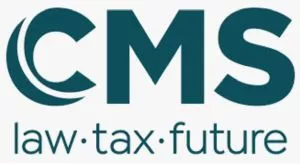On 13 June 2025, the Council of the European Union released an updated version of draft regulation on payment services (the "Draft Regulation", PSR).
The Draft Regulation sets out a transitional period, which is from the date of its entry into force to 24 months after this date (the "Transitional Period"). During the Transitional Period, Directive (EU) 2015/2366 on payment services in the internal market ("PSD 2") shall not be entirely applicable in specific circumstances that are described in the Draft Regulation.
Consequently, the Draft Regulation reflects the "no action letter" of the European Banking Authority (the "EBA Letter") on the interplay between PSD 2 and markets in crypto-assets regulation ("MiCAR"), regarding crypto-asset service provider ("CASPs") which transact in electronic money tokens ("EMTs").
This interplay is addressed by the updated version of the Draft Regulation. Under the Draft Regulation, payment transactions with EMTs are excluded from the scope of the Draft Regulation. This exemption pertains to (i) payment transactions with EMTs, without any intermediary involved, including transfers of EMTs between two self-hosted addresses, (ii) payments transactions carried out by a CASP intermediating between a buyer and a seller where EMTs are exchanged for EMTs or crypto-assets, as well as the exchange of EMTs for funds, including EMTs, or crypto-assets carried out by a CASP acting in its own name as buyer or seller of those EMTs, and (iii) payment transactions carried out between CASPs or their branches for their own account. Thus, as highlighted by the EBA Letter, no authorisation of CASPs under PSD 2 is required in the above-described situations for the Transitional Period.
Furthermore, where payment transactions with EMTs are settled on the distributed ledger, payment service providers are subject to the provision of information to the payment service user regarding the maximum execution time and the charges. However, during the Transitional Period, and where payment service providers are not able, due to circumstances that are not attributable to them, to comply with the above-mentioned obligations, the payment service provider makes a reasoned estimation prior to the payer authorising the transaction.
Finaly, payment services providers in payment transactions with EMT are exempted from certain rules on (i) access to payment account in the case of payment initiation services and (ii) access to and use of payment account information in the case of account information services.
The content of this article is intended to provide a general guide to the subject matter. Specialist advice should be sought about your specific circumstances.






